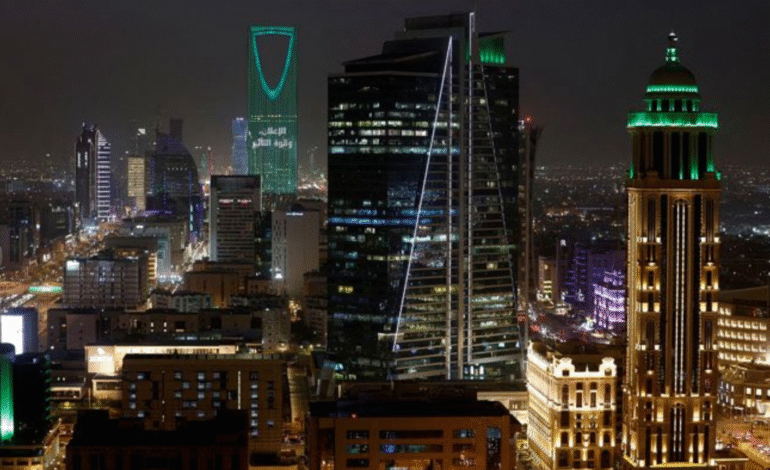Saudi Arabia to Open Real Estate Market to Foreign Buyers in 2026

Saudi Arabia is set to open its real estate market to international investors and buyers starting January 2026, following an approved law by the Saudi Cabinet. This landmark decision forms part of the Kingdom’s ambitious Vision 2030 agenda, aimed at diversifying its economy beyond oil and attracting significant foreign direct investment (FDI) into the real estate sector.
The announcement marks a historic shift in Saudi Arabia’s property ownership regulations, which have traditionally restricted real estate purchases to Saudi nationals and Gulf Cooperation Council (GCC) citizens. This reform will enable non-Saudis to purchase property in select cities and designated zones, including economic hubs like Riyadh and Jeddah, signaling an open invitation to global investors, developers, and expatriates interested in the Kingdom’s booming real estate landscape.
Vision 2030 and Economic Diversification Drive Policy Reform
Saudi Arabia’s Vision 2030 blueprint aims to transform the Kingdom into a vibrant, globally competitive economy, reducing dependence on oil revenue. One crucial pillar of this strategy involves the real estate sector, which plays a vital role in economic growth, urban development, and job creation.
Opening property ownership to foreigners is expected to spur increased investment, accelerate real estate supply, and foster development projects aligned with Saudi Arabia’s ambitious urban and infrastructure plans. This strategic reform aligns with other government initiatives, such as the Premium Residency Program, designed to attract high-net-worth individuals and skilled expatriates by offering long-term residency without citizenship.
Majed Al Hogail, Minister of Municipal and Rural Affairs and Housing and Chairman of the Real Estate General Authority, welcomed the legislation, emphasizing its role in stimulating the real estate market and attracting global investors. “The updated law aims to increase real estate supply, attract global investors and developers, and further stimulate foreign direct investment in the Saudi market,” Al Hogail said.
Details of the New Law: Where and How Foreigners Can Buy Property
The new real estate law clearly delineates which areas will be open for foreign ownership. Key metropolitan cities such as Riyadh and Jeddah will be among the designated zones where non-Saudis can purchase residential and commercial properties. However, due to their religious significance, the holy cities of Mecca and Medina will have stricter regulations, with additional conditions governing foreign ownership.
The Real Estate General Authority will issue a detailed map of the geographic zones open to foreign investors, alongside comprehensive executive regulations outlining the application process, eligibility criteria, and compliance measures. These regulations are expected to be published within 180 days from the law’s official gazette announcement and will be available for public consultation through the “Istitlaa” platform, encouraging transparency and stakeholder participation.
Ensuring Protection for Saudi Nationals and Regulatory Safeguards
While the move opens doors for foreign investment, the Saudi government has emphasized that the reform incorporates robust controls to protect Saudi citizens’ interests in the real estate market. The new law includes safeguards to prevent speculative practices, ensure market stability, and uphold fair access for Saudi nationals.
These controls are crucial for balancing the influx of international buyers with the socio-economic priorities of local communities. The regulatory framework will also complement existing residency and investment laws, including the Premium Residency Law, which already allows certain expatriates property ownership rights under specific conditions.
Impact on Regional Real Estate and Investment Trends
Saudi Arabia’s decision to liberalize its property market will have ripple effects across the Middle East’s real estate landscape. For years, the UAE, especially Dubai and Abu Dhabi, has been a major magnet for foreign real estate investment, thanks to its liberal ownership laws and business-friendly environment.
With Saudi Arabia opening its market, competition among Gulf countries to attract global investors is expected to intensify. Saudi Arabia’s vast economic reforms, coupled with mega-projects like NEOM, the Red Sea Project, and Qiddiya entertainment city, offer fresh opportunities for international developers and investors.
This move could encourage more diversified investment portfolios in the region, balancing between established hubs like Dubai and emerging markets in Saudi Arabia. Investors will benefit from a wider array of options in terms of property types, pricing, and development opportunities.
Opportunities for Global Investors and Developers
The opening of Saudi Arabia’s property market presents lucrative opportunities for international investors, real estate developers, and expatriates. Foreign buyers will now be able to participate in a rapidly growing sector supported by government incentives, infrastructure investments, and a young, expanding population demanding modern residential and commercial spaces.
Real estate experts predict that foreign capital inflows will help increase liquidity in the Saudi property market, encouraging the launch of new developments and revitalizing existing projects. Additionally, this may enhance urban living standards through improved housing quality, smart city technologies, and sustainable development initiatives aligned with Vision 2030.
Moreover, foreign investors can expect synergies with Saudi Arabia’s efforts to bolster tourism, entertainment, and business sectors factors that are driving demand for luxury hotels, office spaces, and integrated communities.
Challenges and Considerations for Foreign Buyers
Despite the promising outlook, foreign investors should carefully evaluate the regulatory environment, property rights, and eligibility criteria once the executive regulations are released. The upcoming rules will clarify procedures such as purchase approvals, ownership restrictions, and compliance with local laws.
Non-Saudis will need to understand nuances, especially in sensitive zones like Mecca and Medina, where ownership conditions will be more stringent. Investors should also remain aware of currency regulations, tax implications, and residency requirements linked to property ownership.
Due diligence and collaboration with local legal and real estate experts will be essential to navigate the evolving landscape effectively.
Saudi Arabia’s Broader Real Estate Reform Strategy
This move is part of a comprehensive real estate reform strategy intended to modernize property markets and improve governance. It complements ongoing initiatives such as digitization of property transactions, improved transparency, and enhanced dispute resolution mechanisms.
The Real Estate General Authority continues to play a pivotal role in overseeing market developments, facilitating investor engagement, and ensuring alignment with national economic goals.
The government’s emphasis on balanced growth aims to support sustainable urbanization, affordable housing, and inclusive investment opportunities that benefit all stakeholders.
How This Fits Into the GCC and Middle East Investment Landscape
Saudi Arabia’s real estate liberalization is set against a backdrop of increased regional economic cooperation and integration. The Gulf Cooperation Council (GCC) countries have collectively been enhancing investment frameworks, free zones, and residency laws to attract global capital.
The move may spur further policy harmonization among GCC states, benefiting investors with simplified cross-border transactions and diversified portfolios. The evolving Middle Eastern real estate market is becoming increasingly interconnected, offering strategic advantages to investors seeking growth outside traditional Western markets.
A New Era for Saudi Real Estate and Foreign Investment
Saudi Arabia’s decision to allow foreign ownership of property from 2026 marks a historic turning point in the Kingdom’s economic transformation journey. By opening its real estate sector, Saudi Arabia aims to attract global capital, accelerate urban development, and position itself as a major player in the international property market.
This policy shift aligns with Vision 2030’s goals of economic diversification, innovation, and sustainable growth. For investors, developers, and expatriates, the Kingdom’s emerging property market offers vast potential wrapped in evolving regulatory safeguards.
As Saudi Arabia prepares to welcome foreign buyers, the broader Middle East real estate landscape stands on the cusp of significant change, promising new opportunities and dynamic competition in the years ahead.








2 Comments
[…] commenced on July 23, 2025, in Damascus, marks a pivotal moment in Middle East economic ties, with Saudi Arabia poised to sign investment agreements worth SR15 billion (approximately $4 billion). Organized by the […]
[…] Saudi Arabia has introduced a transformative real estate law that redefines property ownership for non-Saudis, marking a significant shift in the Kingdom’s regulatory landscape. Published in the Umm Al-Qura Gazette on July 25, 2025, and set to take effect on January 21, 2026, this law expands opportunities for foreign ownership, usufruct rights, and leaseholds across designated zones. As reported by the Saudi Gazette, the legislation aims to attract global investors, residents, and entities while maintaining strict controls, particularly in the holy cities of Makkah and Madinah. This move aligns with Saudi Arabia’s Vision 2030, which seeks to diversify the economy and enhance foreign investment. […]
Comments are closed.